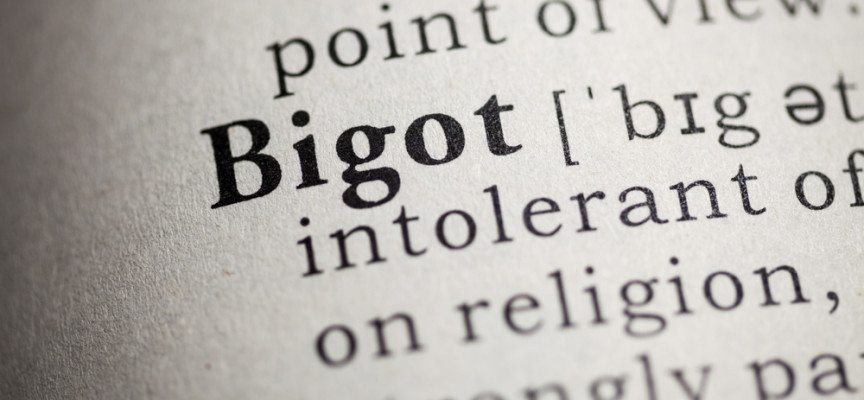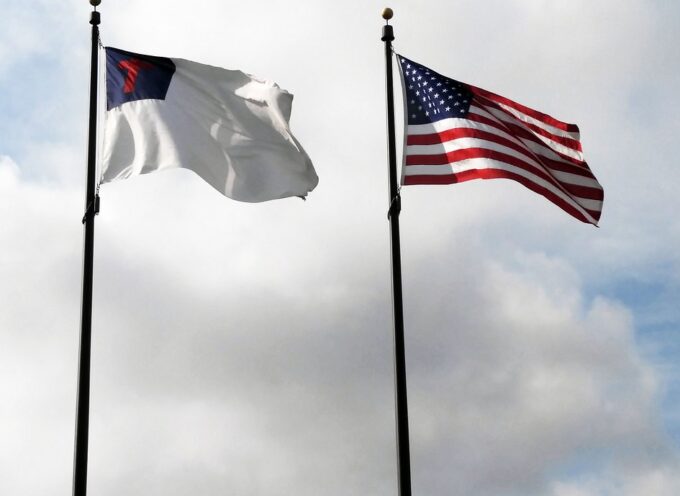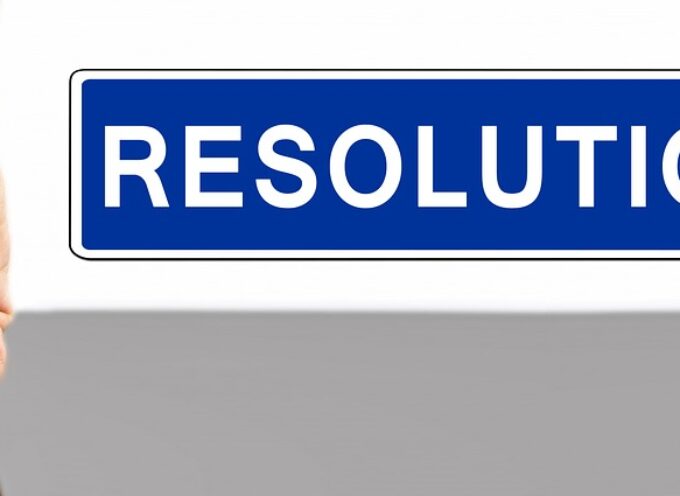The most recent Wikileak email dump provided even more evidence of the widespread Christianophobia of many powerful persons who are politically progressive. In emails hacked from John Podesta’s account, the current Clinton campaign chairman and former Obama counselor received emails from colleagues who referred to conservative Christians as “backwards” and “bastardized.”
Podesta’s colleagues’ opinions are not surprising. Only a person with the dimmest spark of critical reflectiveness could be unaware of the regularity of this sort of bigoted treatment of conservative Christians.
Note to reader: For excellent concise introduction to anti-Christian hostility, see George Yancey’s Hostile Environment: Understanding and Responding to Anti-Christian Bias. Yancey is a Professor of Sociology at the University of North Texas who specializes in race/ethnicity, biracial families and anti-Christian bias.The U. S. Commission on Civil Rights
More significant by far than Podesta’s comments is a report recently published by the U. S. Commission on Civil Rights. Entitled, “Peaceful Coexistence: Reconciling Nondiscrimination Principles with Civil Liberties,” the report essentially places a priority on nondiscrimination over religious liberty and implies that religious believers are bigots who hide their bigotry behind the Constitutional right to religious freedom.
The report errs in a number of ways. Religious believers should understand these errors and the negative effects upon our nation if the Commission’s line of reasoning proves persuasive to our nation’s citizens.
Circular Reasoning
First, the report employs circular reasoning. Instead of reasoning from a premise toward a conclusion, it starts with its conclusion already assumed. Commissioner Gail Heriot’s dissenting comments make this point: “By starting with an assertion that antidiscrimination laws are ‘pre-eminent,’ the Commission’s analysis essentially begins with its conclusion. Why should anyone accept it? The Commission said so.” Heriot, a University of San Diego law professor, is right: if you start out with the conclusion as the first premise, it doesn’t really matter what the second premise is because you can still reach the conclusion you want.
Prioritization of Nondiscrimination over Religious Liberty
Second, the report undercuts the Constitution by prioritizing “nondiscrimination” over religious liberty. In dissenting comments, Commissioner Peter Kirsanow writes, “Religious liberty is more fundamental to Constitutional principles than non-discrimination. Religious liberty is an undisputed constitutional right.” Kirsanow, an attorney and editor of the Cleveland State Law Review, is correct: the Constitution considers religious liberty more fundamental than non-discrimination.
A Jaundiced View of Religious Believers
Third, it takes a jaundiced view of religious believers. Chairman Martin R. Castro exemplifies this negative prejudice when he writes, “The phrases ‘religious liberty’ and ‘religious freedom’ will stand for nothing except hypocrisy so long as they remain code words for discrimination, intolerance, racism, sexism, homophobia, Islamophobia, Christian supremacy or any form of intolerance.” As William McGurn noted, Castro’s contribution illumines the way progressives insult Americans with different views and, in so doing, flout their own stated agenda.
A Misunderstanding of the Nature of Religion
Fourth, it misunderstands the nature of religion itself. Like many leftist seculars, the Commission’s majority seem to restrict religion to any phenomena involving “the private worship of a supernatural deity.” This conception is flawed.
It is flawed because religion may or may not involve the worship of a supernatural deity. The Christian tradition conceives of religion in terms of a person’s ultimate commitments. Whatever sits on the throne of our heart—commanding our loyalties and shaping our lives—is our “god.” One person’s God may be the Christian Trinity. Another’s god may be secular liberalism.
It is also flawed because religion is not merely private. Religion involves our most ultimate commitments and, for that reason, radiates outward into everything we do and everything we say. In other words, the Commission’s majority is not really secular, and their own religious commitments radiated outward into the public document they released.
Because the Judeo-Christian framework of belief is increasingly being sidelined in our nation, secular liberals are able to leverage their own religious framework in its place. They are able restrict religious liberty in order to provide unfettered public space for sexual self-expression, gender manipulation, or any number of other things. They are able to do this even though the former is enshrined in the Constitution and the latter certainly are not.
The Obergefell decision and its aftermath crystallize the point. With the increasing marginalization of the Judeo-Christian moral framework, the SCOTUS majority was more easily able to redefine the institution of marriage and saddle religious believers with that redefinition even if it conflicts with religious believers’ consciences.
Reforming Our Public Understanding of Religion and Fostering Genuine Plurality
The danger of embracing the flawed conception is that seculars get to pretend they have no religion. The Judeo-Christian God gets demoted to the realm of “private worship” while theirs gets promoted to the commanding heights of public life. Our God gets kicked out of the front door while their god gets whistled in through the back.
This situation—represented by progressives such as the Podesta circle and the Civil Rights Commission’s majority—does not benefit our great nation. Instead of allowing secular progressives to hide their own religion and then prioritize non-discrimination over religious liberty, we should encourage them to recognize their own ultimate commitments and respect the ultimate commitments of others. In doing so, we can promote genuine plurality and tolerance rather than fostering Christianophobia and bigotry.
Subscribe
Never miss a post! Have all new posts delivered straight to your inbox.








This tired argument that “secular liberalism” (read: atheism) is a religion “just like Christianity is” exposes the weakness of the evangelical position. No, the superstitious belief in a supernatural being and the arbitrary rules he or she allegedly imposes on human beings is not the equivalent of a philosophy that values reason, evidence, and the rights of all people to live their lives however they choose as long as they do no harm to others.
Mark, hi and thank you for taking the time to comment. Every set of ultimate commitments (including atheism) involves faith-commitment and comprehensive allegiance. Atheists certainly do draw upon their reasoning processes and upon evidence, but their faith-commitment can be seen in committing to a worldview that purports to be able to prove a universal negative. Proving a universal negative is, er, notoriously difficult, which is why most atheists hedge their bets and call themselves agnostics. As for your remark about “the rights of all people to live their lives however they choose as long as they do no harm to others,” that is the point of my article. Agreed.
Being an atheist simply means you do not believe in God and is not a knowledge claim. Therefore no negative proof is required. I would assume you don’t believe in Santa Claus or the Easter Bunny even though you can not prove for certain they do not exist. Would you accept that your non belief in Santa Claus or the Easter Bunny is just as much a myth as believing in them? I don’t think so.
Criticism of Islamic ideology and its application is not Islamophobia. Negative stereotyping and profiling of Muslims is Islamophobia. The same applies for Christianity or any other religion, or ideology for that matter.
“Whatever sits on the throne of our heart—commanding our loyalties and shaping our lives—is our “god.”” I have never before seen this definition for a god anywhere. The meaning of words matter, if you twist their meaning to suit your agenda all sensible debate collapses. However, if I accept your definition for “god” and I apply it to my life, here are my gods: integrity, loyalty, kindness, my family, my friends, freedom, music, the planet earth, my home, adventure and work. Under your definition of the word “god”, the word atheist makes no sense. That is because all humans have something “commanding our loyalties and shaping our lives”. As a non-believer in super natural deities, retiring the word “atheist” is fine by me.
Gerry, hi and thank you for taking the time to comment. I apologize that my comments have to be brief right now, but the short of it is this: I agree with your comments about “phobia,” and I use that language ironically because my article is intended to reveal an irony (that secular progressives often accuse Christians of having phobias when they are in fact disagreeing with a line of reasoning or with an action). As for my definition of “god,” it is not novel. It goes all the way back to Judaism and to the early church in Christianity. Augustine is well known for employing the same definition. But when I say “god,” i’m not saying “things a person approves of.” Instead, I am saying that whatever a person abolutizes or sets up as ultimate is that person’s god. It is a functional god and a functional savior. And any time we absolutize something, it will involve faith commitments. As for Santa Claus or the Easter Bunny: if a billion or two people found that belief in them was logically coherent, empirically adequate, and existentially viability, I’d be forced to look into it. But nobody does, and for good reason.
Who’s the bigot now? Seems to me that the author is. The pseudo science he uses to make his point stem from a number of issues, premised with the overall misconception that the Constitution’s guarantee of religious freedom is a public right. It’s not; it’s an individual right to which each individual is entitled. There is no ‘right’ to religious liberty…religious liberty is something enshrined in a law (not a Constitutional amendment) enacted by a Republication controlled congress to permit and protect the on-going practices of some right-wing christian fundamentalists to discriminate with impunity against anyone they whose beliefs or lifestyles they don’t approve of. In my opinion, it’s well past time that those who profess Christianity start actually practicing it by following the admonition to love their neighbors as they love themselves; all of their neighbors, not just the ones they approve of.
Philip, good morning and thank you for taking the time to comment. You’re right that professing Christians should follow the admonition to love our neighbors as we love ourselves. We are guilty of not doing that. But on the other hand, you seem to be saying that loving my neighbor requires agreeing with their actions. If that is what you are saying, I don’t agree. I’m a principled pluralist, and the whole point of my view is that people should be able to live alongside of one another civilly even when there is disagreement on serious issues. Disagreement is not discrimination. For that reason, a democratic republic should not coerce the mediating institutions of society to give up their commitments. They can keep their commitments privately and publicly and still live civilly alongside of folks with whom they disagree. E pluribus Unum.
Oh, now I see…only comments the author (or publication) approves of, eh?
Philip, the article’s scribe cannot approve comments in his sleep. 🙂
Bruce,
Thanks for your article. It makes many good points. I find it ironic however that the source of this disturbing attack on religious liberty comes from the emails of John Podesta, Hillary Clinton’s campaign manager, and yet you have taken the position of not supporting her opponent in this campaign. Setting groups of Americans against each other (“group identity politics) is political strategy #1 for Hillary Clinton and her party. It is befuddling to me how people of faith, particularly faith based leaders, can take a position to facilitate such divisiveness. There is no inherent reason for differing opinions to divide us. People of good will on the varying sides of issues can search for and usually find common ground in a pluralist society. I would think opposing the political strategy of division would be an easy decision not just for persons of faith but for all thinking and caring individuals.
Hello, Wallace. Thank you for taking the time to comment. I will very soon be publishing an evaluation of both candidates, explaining in detail the dangers that both candidacies represent. My decision not to vote for Mr. Trump is a positive strategy and not one of division. In the meantime, one essay that expresses many of the dangers of a Trump presidency is available online. Its by Peter Wehner (served in Reagan and Bush administrations) and is entitled, “The Comprehensive Case against Donald Trump.”
It would help if you would specify what discrimination you feel should be protected as religious liberty. It seems so ironic to me, to be protecting discrimination in the name of liberty. Actually, it’s Orwellian. While we’re at it, maybe I should use your logic to argue that protecting the free market guarantees my freedom to hold slaves.